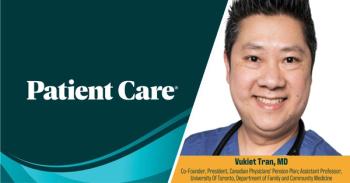
Novel School-based Asthma Program Cuts ER Visits in Half
In a new study, the combination of hands-on in school asthma therapy and telemedicine visits proved a successful model that could be scalable.
A novel school-based intervention that includes supervised asthma therapy and telemedicine visits can improve outcomes for urban children with asthma, and potentially overcome key barriers to guideline-based preventive care, according to a new study.
The study expands on previous research that showed children with asthma who took their preventive medication at school under the supervision of their school nurse were less likely to have asthma issues. The addition of a telemedicine component allows for the child's primary care provider to stay readily involved in the child’s care and makes the program more sustainable and scalable, potentially allowing it to be used as a model for urban-based asthma care nationally, state the researchers, led by Jill Halterman, MD, MPH, Chief of the Division of General Pediatrics at the University of Rochester Medical Center in Rochester, NY.
Clinicians and researchers are designing similar programs across the country, using resources available in their communities to reach underserved children with asthma and help them get needed assessments. “But regardless of how you’re reaching them initially, those children may continue to have issues if they aren’t taking their medications regularly. The integration of telemedicine with supervised treatment through school provides one model to ensure that children receive consistent, effective asthma treatment,” said Halterman.
The researchers published their results January 8, 2018 in
In this randomized clinical trial, 400 children with persistent asthma, aged 3 to 10 years, in the Rochester City School District were stratified by preventive medication use at baseline and randomly assigned to the intervention program or enhanced usual care for one school year. Half of the students had an initial asthma assessment as well as up to two follow-up school-based visits with primary care clinicians via telemedicine over the course of the school year to determine the appropriate asthma treatment. The other half of the students were given recommendations for preventive care and advised to schedule follow-up visits with their primary care clinician.
The mean age of the children was 7.8 years. Both groups had similar demographics and asthma severity at baseline.
The intervention was well-attended -- among the 196 children in the intervention group, 98% had 1 or more telemedicine visits and 82.5% received supervised therapy through school. “We found that children in the (intervention) group had more symptom-free days per 2 weeks post-intervention (11.6) compared with children in the enhanced usual care group (10.97), with the largest difference observed at the final follow-up,” said Halterman.
In addition, the children who received a combination of telemedicine support and school-based medication therapy were half as likely to need an emergency room or hospital visit for their asthma (7%) as the control group (15%).
The intervention “significantly improved symptoms and reduced health care utilization among urban children with persistent asthma,” stated the researchers.
Halterman noted the school nurses, in particular, were critical to the success of the program. “They do this extra work because they want to focus on preventing symptoms, and they feel it is important for the health of the children in the district,” she said.
Newsletter
Enhance your clinical practice with the Patient Care newsletter, offering the latest evidence-based guidelines, diagnostic insights, and treatment strategies for primary care physicians.



































































































































